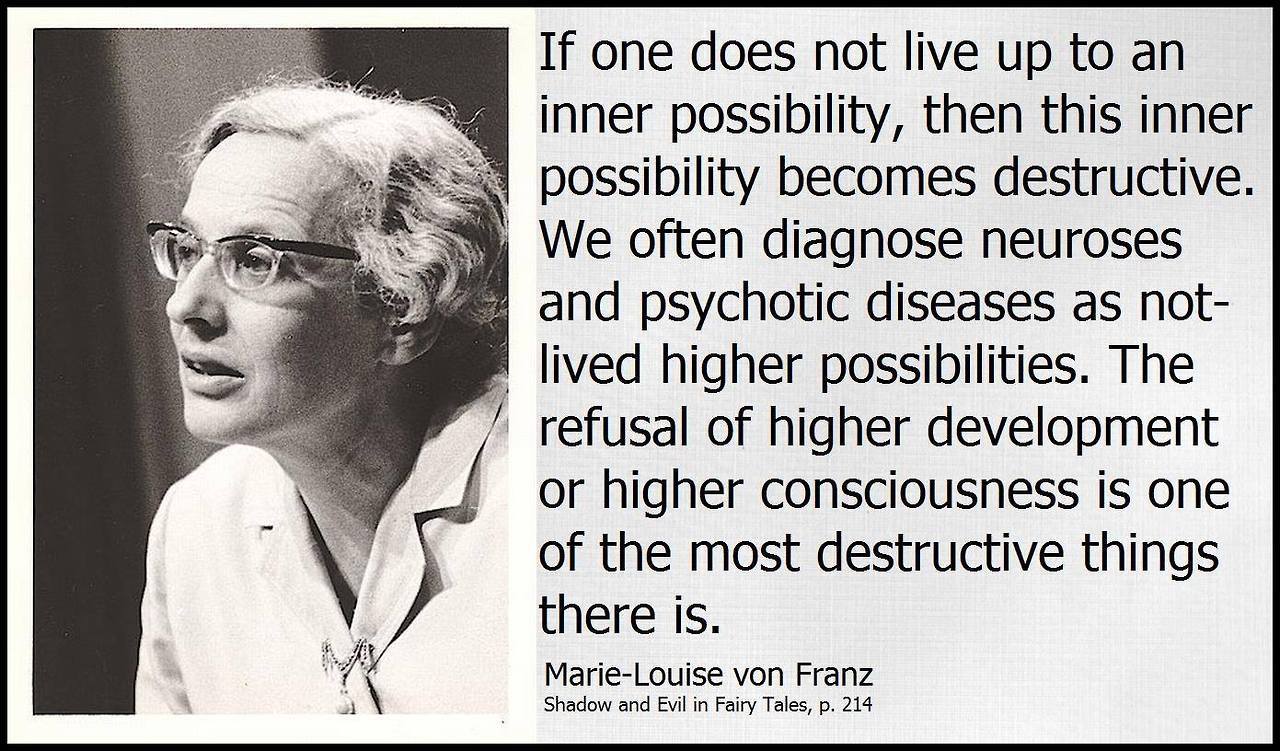

At breakfast every morning all the black carriers discussed their dreams, after which the leader of the group would go to Dr. Jung was in Africa, his Safari guide was an Islamic, I believe a Shi-ite. The religious and primitive attitude involves constant consideration of these powers. A bell does not always ring warning us, but if it does and one ignores it, then something goes wrong. If I get no contrary indication, I can decide to have the coffee, since I have time, or because I like it. Naturally there are also personal arguments, and pros and cons, but to live in a religious way would mean being constantly on the alert for those unknown powers which also guide one’s life. In Chinese philosophy, it is tantamount to paying constant attention to Tao, whether what I am now doing is right, in Tao. One can laugh at that as superstition, and naturally on that level it is not different from superstition, but it is not just a mechanical thing such as the idea that if a black cat crosses your path you should turn back, but rather that all the time one should concentrate and try to get some sign from the Self, or from inside oneself. von Franz: Yes, it has all the symptoms of primitive religion, namely participation mystique – observation of synchronistic events, observations of signs, not acting without first observing inner and outer symptoms and signs, or as it has been defined, the constant, careful attention towards unknown factors.Īccording to that definition, religion means never acting only in accordance with conscious reasoning, but with constant attention and consideration of the unknown participating factors.įor instance, if someone says: “Let us have coffee together after the lecture,” if I think only that I have time since I don’t have lunch until 12:30, that would be conscious reasoning, which of course is also correct, but if I am a religious person, I will stop for a minute and try to get a feeling as to whether it is right to do that, and if I have an instinctive feeling against it, or at that moment a window bangs shut, or I stumble, then I might not go. Question: Would the primitive religious attitude have to do with participation mystique?ĭr. The upper layer of learned people in Greece, perhaps for the first time, had cut away from the primitive religious attitude which was then projected first onto the Indians and Ethiopians and later, according to late Greek literature, onto the Egyptians and such people, who were then considered to be the highest and closest to God, and in their realm, our text says the alchemical mystery was to be found.Ī return to the primitive self-evident attitude towards life is a requisite for the experience of the Self, which cannot be found through the conscious mind and with the developed part of the personality but by first returning to that primitive human attitude….

Greek civilization had evolved from that state through the pre-Socratic and the Sophistic philosophy and the various evolutions of Greek philosophy.

In his primitive condition, man is naturally religious and his religion pervades his whole nature and all his activities. Religion was not separated from the profane, everyday life, but the self-evident basis of everything done, believed, and said. “A study of primitive civilizations shows their religious attitude towards life as being something completely self-evident. Marie-Louise von Franz (Alchemy, excerpts from p.


 0 kommentar(er)
0 kommentar(er)
